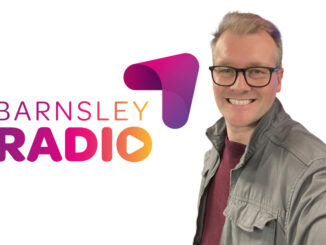
BBC Radio Wales Lynda Shahwan dies after Canada car accident
BBC Radio Wales producer and presenter Lynda Shahwan has died following a car accident while on holiday in Canada with her family.
Lynda, aged 53 and from Heath in Cardiff, worked at BBC Radio Wales for over 25 years. She created and co-presented Terry Walton’s Plotcast, a podcast exploring gardening life on a Rhondda hillside.
Gardening expert Terry Walton paid tribute, saying: “We pass our sympathies on to Lynda’s husband Sharif, their two sons and all of the family on the tragic and sudden taking of Lynda from us far too soon.
“My last two years of working with Lynda on the Plotcast were the most fulfilling and cherished broadcasting I have done.
“Our chemistry and her creative talent made every episode a gem of gardening knowledge. Her professionalism and easy going manner made every recording a pleasure and brought the best out of us both.
“We became true friends and after recording we would both relax and discuss many aspects of life.”
Head of BBC Radio Wales Carolyn Hitt described Lynda as “a very special person” who made a brilliant impact on the station since joining in 1999.
For many years, Lynda was known to Roy Noble’s morning listeners as ‘The Lily from Caerphilly’ and more recently returned to co-present the Plotcast, described as her passion project.
Carolyn added: “We are all devastated at the sudden loss of our much-loved colleague and friend. Our hearts go out to Lynda’s husband Sharif – also a valued colleague – their two sons, family, and friends. Her creativity, kindness and care will never be forgotten.”
#mc_embed_signup{background:#fff; false;clear:left; font:14px Helvetica,Arial,sans-serif; width: 600px;}
/* Add your own Mailchimp form style overrides in your site stylesheet or in this style block.
We recommend moving this block and the preceding CSS link to the HEAD of your HTML file. */ […]



